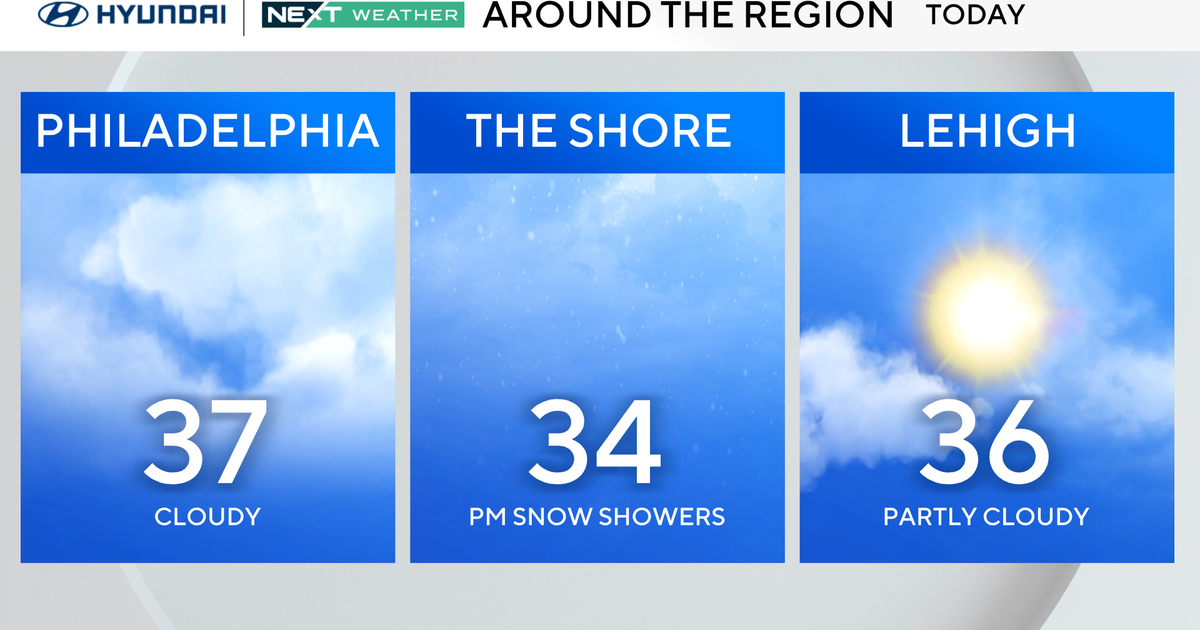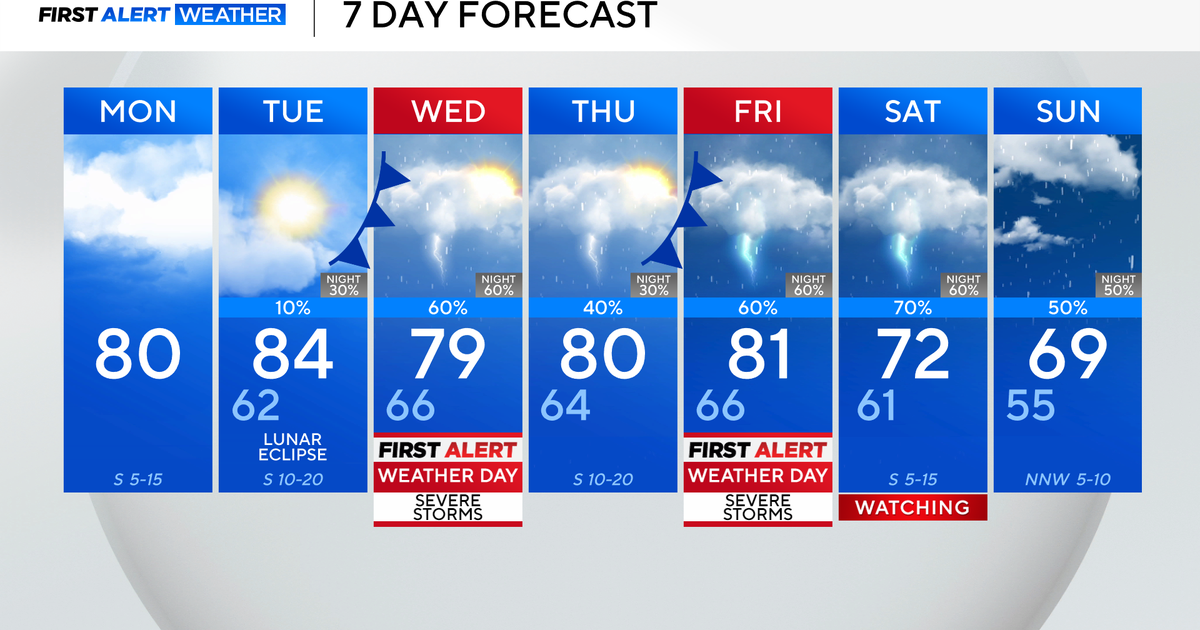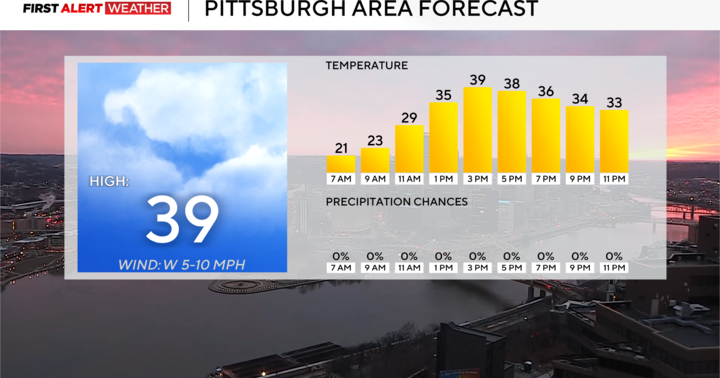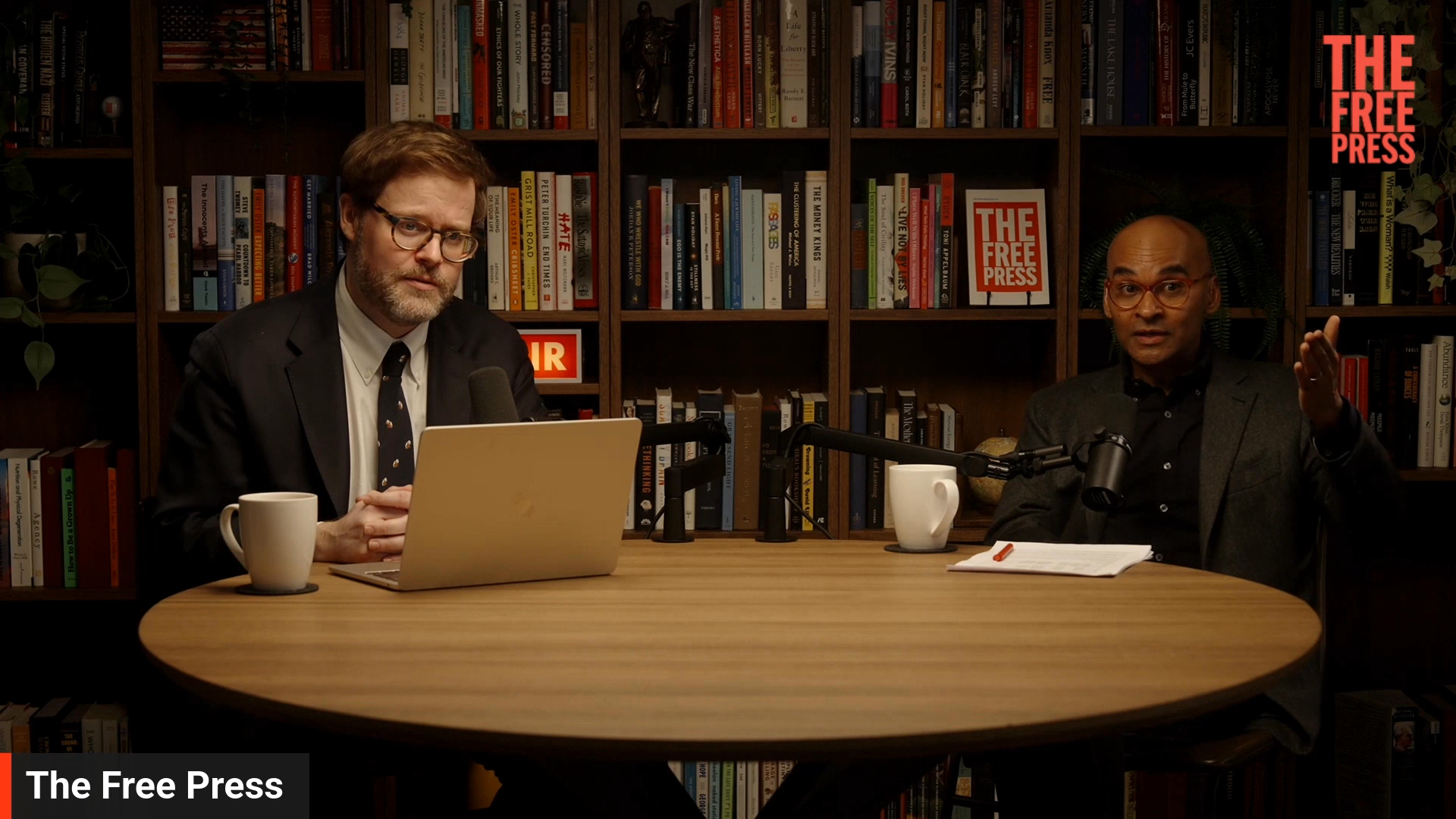5G technology could interfere with weather forecasting
Experts are warning that the development of 5G technology could interfere with weather forecasting. The acting head of the National Oceanic and Atmospheric Administration (NOAA), Neil Jacobs, testified on Capitol Hill last week that potential interference from 5G wireless radios could reduce forecasting accuracy by as much as 30%, CNET reports.
In March, the Federal Communications Commission started auctioning off the 24 GHz spectrum to wireless carriers for use in 5G networks, which would eventually enable far faster wireless internet. But as CBS News weather producer David Parkinson explained on CBSN, that's close to the 23.8 GHz spectrum forecasters rely on to look at water vapor in the atmosphere.
"The concern is that if you miss one of the water vapor signals at seven days out, you might not see that a hurricane is intensifying. You might not see that there are certain things going on in the atmosphere that are going to steer a storm in one particular direction," Parkinson said.
He said the worst-case scenario is that this could take our forecasting accuracy back to where it was in the 1980s, wiping out decades of progress.
"We like to say that the 10-day [forecast] now is as accurate as the 7-day used to be, which is as accurate as the 5-day used to be in the 90s, which is as accurate as the 3-day used to be in the 80s," Parkinson said.
Forecasting isn't the only concern related to 5G technology. Rep. Abigail Spanberger, D-Virginia, has introduced a bill to protect the technology's infrastructure from foreign threats — a significant concern as China pushes hard to become a leader in 5G. The bill would require President Trump to develop a national strategy to maximize the security of 5G technology across the country and help allies in securing their own infrastructure.



